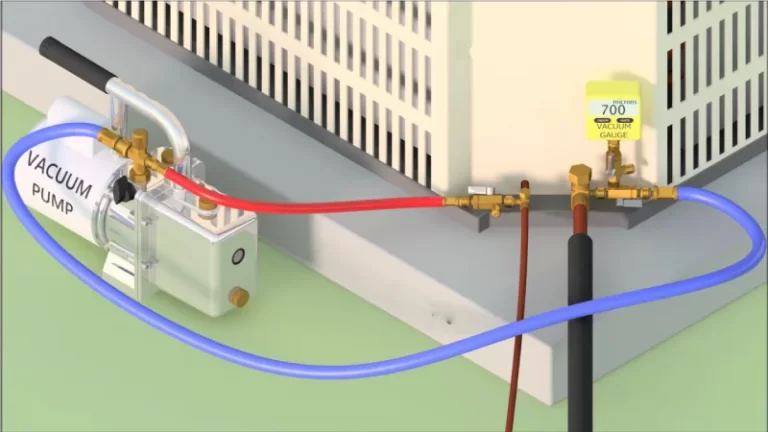Bosch Refrigerator Problems and Solutions
Bosch refrigerators are known for their high-quality German engineering and advanced technology. However, like all appliances, Bosch refrigerators can experience problems over time. It is important to be aware of these potential issues and to regularly maintain and troubleshoot your refrigerator to ensure it is functioning properly.
Bosch refrigerators are known for their advanced technology and German engineering, making them a popular choice among homeowners. However, like any other appliance, Bosch refrigerators can experience problems from time to time.
In this article, we will discuss five common problems that can occur with Bosch refrigerators and how to troubleshoot them. Regular maintenance and troubleshooting can help extend the lifespan of your Bosch refrigerator and prevent costly repairs.
You'll Learn About
Bosch Refrigerator Problems
Bosch is a well-known brand of refrigerators that is known for its advanced technology and German engineering. However, like any other appliance, Bosch refrigerators can experience problems. Some of the common issues with Bosch refrigerators include:
- Fridge not cooling – This issue can be related to temperature control, a freezer malfunction, or something simple like a failing door seal.
- Loud noise – Some Bosch refrigerators may make a loud noise, which can be due to a malfunction or a problem with the compressor.
- Unable to defrost – A Bosch fridge that is unable to defrost can be due to a problem with the defrost system, such as a faulty thermostat or defrost sensor.
- Malfunctioning ice and water dispenser – A common problem faced by people is a malfunctioning ice and water dispenser in their Bosch fridge.
If your Bosch refrigerator is experiencing any of these issues, it is recommended that you contact Bosch customer support at 1-800-944-2904 for assistance.
Problem 1: Fridge Not Cooling
One of the most common problems that can occur with Bosch refrigerators is that the fridge is not cooling. This can be caused by several factors, including a dirty condenser, a failing thermostat, or a clogged defrost drain.
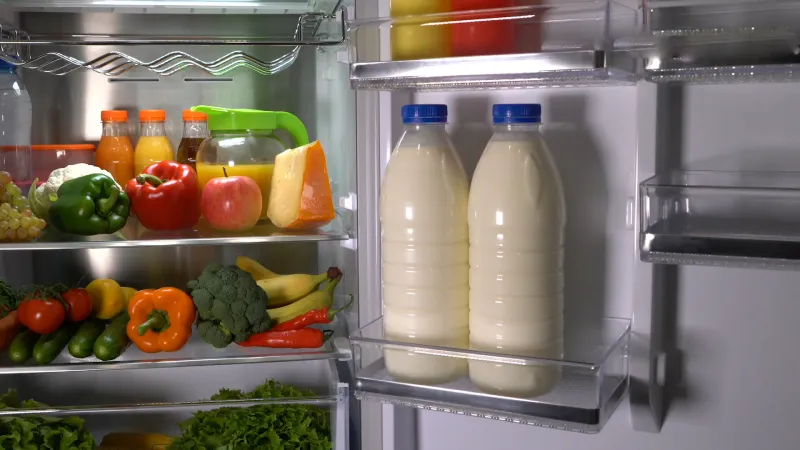
Causes of the Problem
- Dirty condenser: The condenser coils are responsible for removing heat from the fridge, so if they are dirty, they won’t be able to perform this function effectively.
- Failing thermostat: If the thermostat is faulty, it won’t be able to accurately control the temperature inside the fridge.
- Clogged defrost drain: The defrost drain can become clogged with ice, which can cause water to accumulate and freeze in the bottom of the fridge.
Troubleshooting Tips
- Clean the condenser coils: Unplug the fridge and use a vacuum or a brush to clean the condenser coils.
- Check the thermostat: Check the thermostat settings to make sure that the temperature is set correctly. If the thermostat is faulty, it will need to be replaced.
- Thaw the defrost drain: Unplug the fridge and use a hair dryer or a hot towel to thaw the defrost drain.
When to Call for Professional Help If the fridge is still not cooling after trying these troubleshooting tips, it is recommended to call for professional help. A qualified technician will be able to diagnose and repair the problem, ensuring that your fridge is working correctly.
In conclusion, if your Bosch refrigerator is not cooling, it could be due to a dirty condenser, a failing thermostat, or a clogged defrost drain. By following these troubleshooting tips, you can resolve the problem and extend the lifespan of your Bosch fridge. However, if the problem persists, it is best to call for professional help to ensure that the issue is properly resolved.
Problem 2: Loud Noise Coming From the Fridge
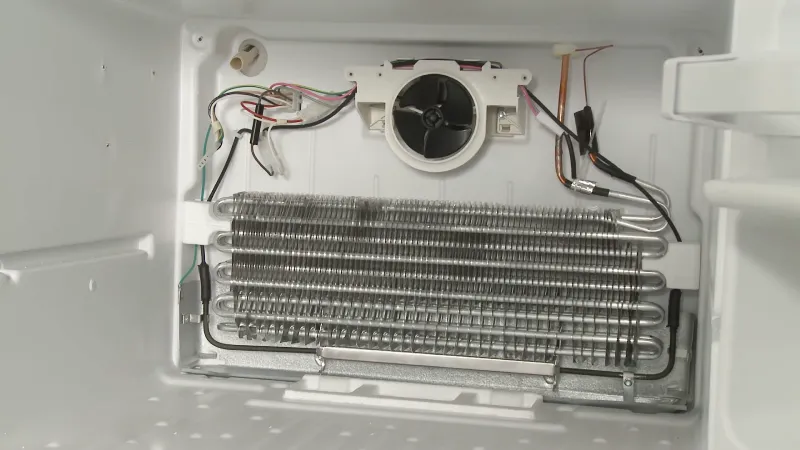
Possible Reasons for the Noise
A common issue with Bosch refrigerators is the presence of a loud noise. The noise can be caused by various reasons, including:
- A fan blade that is out of balance or hitting an obstruction
- A fan motor that is failing or worn out
- A refrigerant leak
- Compressor vibration
- Loose parts or screws inside the unit
How to Fix the Problem
Here are some steps you can take to fix the noise:
- Check if the fan blade is hitting an obstruction and adjust it accordingly
- Locate the source of the noise and tighten any loose parts or screws
- Make sure the fan motor is securely attached to the unit and not vibrating
- Check if the refrigerant levels are adequate and if not, seek professional help
- If the noise persists even after these steps, it may indicate a more serious issue and it’s best to call a professional for assistance.
When to Seek Professional Assistance
If you’re unable to locate the source of the noise or fix the issue yourself, it’s best to seek professional assistance. A technician can diagnose and repair the issue, ensuring that your Bosch refrigerator is running smoothly and efficiently. They can also identify if there is a more serious issue, such as a refrigerant leak, that needs to be addressed.
In conclusion, if you’re experiencing a loud noise coming from your Bosch refrigerator, there are a few steps you can take to troubleshoot the problem. If the issue persists, it’s best to seek professional assistance to ensure that your fridge is running smoothly and efficiently.
Problem 3: Unable to Defrost
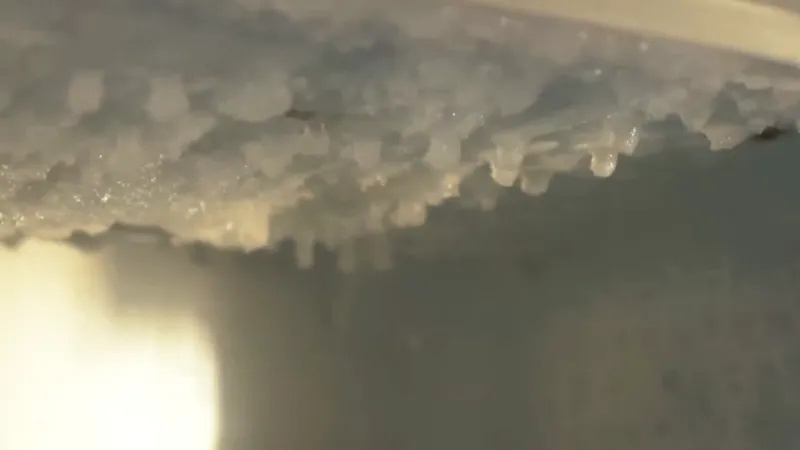
Reasons Why Defrosting is Not Working
There are several reasons why defrosting in a Bosch refrigerator may not be working properly, including:
- Dirty or clogged defrost drain: The defrost drain in the freezer can become clogged with food debris, ice or frost, preventing proper defrosting.
- Faulty defrost thermostat – The defrost heater melts the ice buildup in the freezer. If it is not functioning properly, the ice will not melt and the freezer will not defrost.
Problem 4: Issues With the Ice and Water Dispenser
Common Problems With the Dispenser
The ice and water dispenser in a Bosch refrigerator is a convenient feature that allows you to get cold water or ice without having to open the door. However, it is not uncommon to encounter issues with the dispenser, such as:
- The water dispenser not dispensing water
- Ice dispenser not dispensing ice
- Slow or clogged dispenser
- Water or ice dispensing erratically
How to Troubleshoot the Issue
If you’re having problems with your Bosch refrigerator’s ice and water dispenser, here are some steps you can take to troubleshoot the issue:
- Check if the dispenser is turned on. Make sure the switch for the dispenser is in the “on” position.
- Make sure the water supply line is connected properly. If the water supply line is not connected, the dispenser will not work.
- Check if the water filter is clogged. If the water filter is clogged, water will not flow properly through the dispenser. Replace the filter if necessary.
- Check if the dispenser arm is broken. If the dispenser arm is broken, it will not dispense water or ice properly.
- Check if the solenoid is functioning properly. The solenoid controls the flow of water to the dispenser. If the solenoid is not functioning properly, water will not flow properly through the dispenser.
When to Seek Professional Assistance
If you’re unable to resolve the issue with the ice and water dispenser on your Bosch refrigerator, it’s best to seek professional assistance. A trained technician will be able to diagnose the issue and make any necessary repairs. In some cases, the issue may be a result of a malfunctioning component that will require replacement, such as a faulty solenoid or dispenser arm.
Problem 5: Door Seal Problems
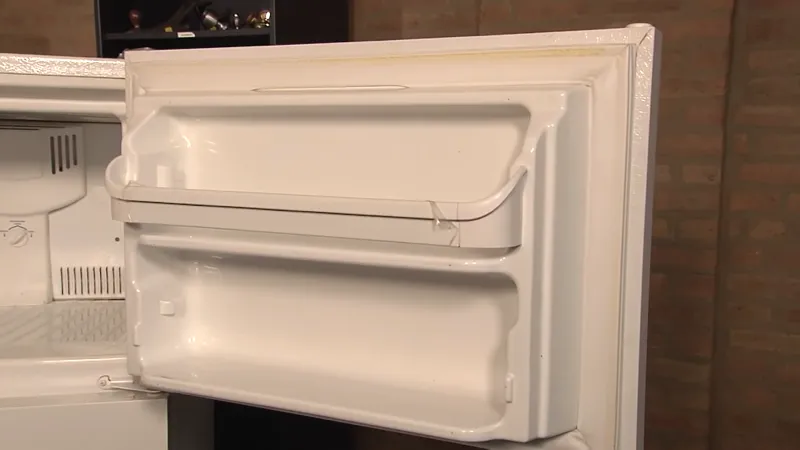
Reasons Why the Door Seal May Not Be Functioning Properly
The door seal of a refrigerator plays a crucial role in maintaining the temperature inside the fridge. A damaged or worn-out door seal can result in a loss of cool air, causing the refrigerator to work harder to maintain the desired temperature. Some of the common reasons for door seal problems are:
- Wear and tear: Over time, the door seal may become brittle and crack, causing it to lose its ability to properly seal the door.
- Improper cleaning: Cleaning the door seal with harsh chemicals or abrasive materials can cause damage to the seal, making it less effective.
- Misalignment: If the door is not properly aligned, it can cause the seal to become distorted and lose its ability to properly seal the door.
Steps to Fix the Problem
Fortunately, fixing door seal problems is a relatively simple and straightforward process that can be done at home. Here are the steps you can take to fix a damaged door seal:
Clean the Door Seal
Use a mild soap and water solution to clean the door seal and surrounding area. Make sure to remove any dirt, grime, or debris that may be stuck to the seal.
Check for Misalignment
Open and close the door several times to see if it is properly aligned. If it is not, you may need to adjust the hinges to ensure that the door is closing properly.
Replace the Door Seal
If the door seal is damaged beyond repair, you will need to replace it. You can purchase a new door seal online or at a local appliance parts store.
When to Seek Professional Help
If you are unsure of how to fix the door seal, it is best to call a professional for assistance. In some cases, the problem may be more complex, such as a malfunctioning door hinge or a problem with the refrigerator’s temperature control system. In these cases, it is best to let a trained technician handle the repair to ensure that it is done correctly.
Problem 6: Freezer Too Warm
Causes of the Freezer Becoming Too Warm
The freezer is an important part of a refrigerator and is designed to keep food items frozen and prevent spoilage. However, when the freezer becomes too warm, it can cause a number of problems such as food items starting to defrost, and in severe cases, spoilage. Some of the common causes of the freezer becoming too warm include:
- Faulty thermostat
- A malfunctioning evaporator fan
- Dirty condenser coils
- A clogged defrost drain
- Issues with the compressor or refrigerant levels
Troubleshooting Tips
If your freezer is too warm, you can try the following troubleshooting steps before calling for professional help:
- Check the temperature setting: Ensure that the temperature setting on your freezer is set correctly.
- Clean the coils: Dust and dirt buildup on the condenser coils can reduce the efficiency of the refrigerator. Clean the coils to ensure proper air circulation.
- Clear the defrost drain: A clogged defrost drain can prevent water from flowing away properly, causing the freezer to become too warm.
- Check the evaporator fan: Ensure that the evaporator fan is functioning properly and replace it if necessary.
- Check the thermostat: If the thermostat is faulty, it may not be able to regulate the temperature in the freezer properly.
When to Call for Professional Assistance
If the above troubleshooting steps do not fix the problem, it is best to call for professional help. An experienced technician will be able to diagnose the issue accurately and repair it quickly, ensuring that your freezer is functioning properly again. Some of the issues, such as a malfunctioning compressor or refrigerant leak, require professional repair and should not be attempted by a layperson.
Problem 7: Fridge is Freezing Up
Reasons Why the Fridge May Be Freezing Up
There are several reasons why a Bosch fridge may be freezing up, including:
- Thermostat issues: The thermostat may be set too low, causing the fridge to freeze up.
- Fan problems: The fan may not be functioning properly, causing cold air to circulate poorly.
- Dirty condenser coils: Dirt buildup on the condenser coils can cause the fridge to freeze up.
- Defrost system problems: The defrost system may not be working properly, causing the fridge to freeze up.
Troubleshooting Tips
Check the Thermostat
Make sure that the thermostat is set to the right temperature. If it is set too low, adjust it to a higher temperature.
Check the Fan
Make sure that the fan is functioning properly. If it is not, clean it or have it serviced by a professional.
Clean the Condenser Coils
If the condenser coils are dirty, clean them with a brush or vacuum.
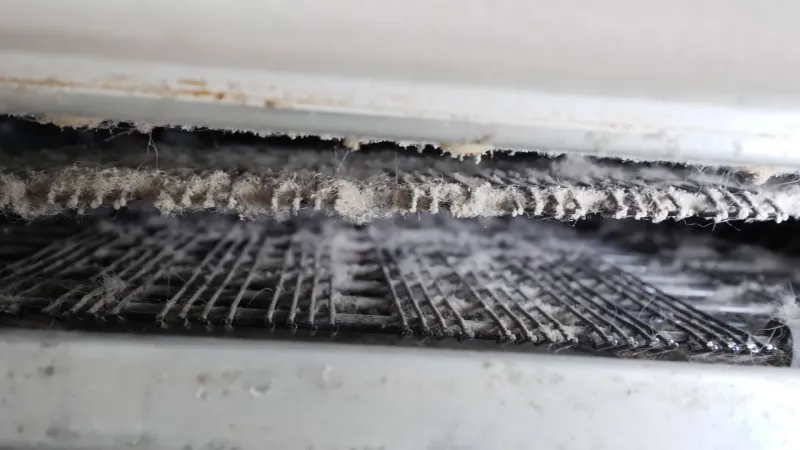
Check the Defrost System
Make sure that the defrost system is working properly. If it is not, try resetting it or have it serviced by a professional.
When to Call for Professional Assistance
If the above troubleshooting tips do not fix the issue, it is best to call for professional assistance. A qualified technician will be able to diagnose and fix the problem, ensuring that your Bosch fridge continues to function properly.
Final Words
Bosch refrigerators are known for their quality and reliability, but like any appliance, they can encounter problems from time to time. The common problems discussed in this blog, such as fridge not cooling, loud noise, inability to defrost, issues with the ice and water dispenser, door seal problems, freezer too warm, and fridge freezing up, can be easily resolved with some troubleshooting tips.
However, if the problem persists, it’s best to seek professional help to ensure the issue is resolved properly and to prevent further damage. Regular maintenance and cleaning can also help prevent these problems and extend the lifespan of the refrigerator.
In the end, by being proactive and taking care of your Bosch refrigerator, you can ensure it will provide reliable and efficient service for years to come. to Fix the Issue
- Here are some steps you can take to try to fix the defrosting issue in your Bosch refrigerator:
- Clean the defrost drain – To clean the defrost drain, remove any food debris, ice or frost that may have clogged it. This can be done with hot water or a solution of warm water and vinegar.
- Check the defrost thermostat – You can test the defrost thermostat with a multimeter. If it is not functioning properly, it will need to be replaced.
- Replace the defrost timer – If the defrost timer is not functioning properly, it will need to be replaced.
- Replace the defrost heater – If the defrost heater is not functioning properly, it will need to be replaced.
- When to Call for Professional Help – If you are unable to fix the defrosting issue in your Bosch refrigerator, it is best to call for professional help. A licensed technician will be able to diagnose the problem and provide a solution. In addition, working on a refrigerator can be dangerous and may result in injury if not done properly.he defrost thermostat controls the defrost cycle by turning the defrost heater on and off. If it is faulty, the defrost cycle will not function correctly.
- Malfunctioning defrost timer – The defrost timer controls the defrost cycle and is responsible for turning on the defrost heater at regular intervals. If it is not functioning properly, the defrost cycle will not work.
- Faulty defrost heater – The defrost heater melts the ice buildup in the freezer. If it is not functioning properly, the ice will not melt and the freezer will not defrost.

